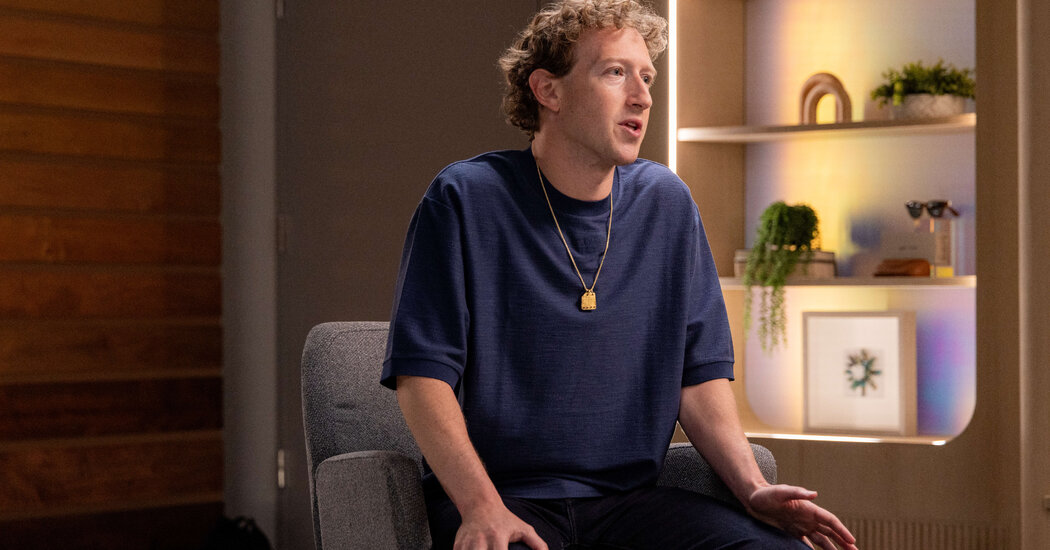The chief executive of Meta said in an open letter that it was important that the technology was not controlled by a handful of giant companies — including his own.
For years, technologists have debated whether it is better for companies to keep the details of their computer code secret or share it with software developers around the world.
That debate — closed versus open source — has become inflamed by the rapid development of artificial intelligence and worries that A.I. is quickly becoming a national security issue.
In an open letter on Tuesday, Mark Zuckerberg, the chief executive of Meta, reinforced what some said was a risky stance taken by his company: that open source development of artificial intelligence would allow technologists to learn how powerful A.I. models are created and use that knowledge to build their own A.I. programs.
Mr. Zuckerberg said it was unrealistic to think that a handful of companies could keep their A.I. technology secret, particularly when Silicon Valley has for years been a target for espionage by countries such as China.
“I think governments will conclude it’s in their interest to support open source because it will make the world more prosperous and safer,” he said in the letter, adding that clamping down on sharing A.I. research would simply stifle American innovation.
Meta also released the latest and most powerful version of its A.I. algorithm, called LLaMA, and added support for seven additional languages — including Hindi, French and Spanish — for Meta AI, the company’s A.I.-powered smart assistant.
